
Singapore banks reign supreme in heating e-payments battle
Early tech adoption will cushion the expected earnings blow from new competitors.
Banks including DBS and OCBC are widely expected to be the top gainers in the heating e-payments battle as telcos like Singtel who are rolling out similar models fail to pose sufficient threat to banking heavyweights, according to Morgan Stanley.
Usage of mobile payments in Singapore has been steadily growing to 53% in 2017, a take-up significantly higher than that of Hong Kong (41%), United States (23%) and Australia (14%), according to study by market research firm J.D. Power.
Also read: Check out mobile wallet adoption across Asia
New players coming into the scene like Grab may pose a threat to banking incumbents who now have to jostle against other firms encroaching in on the payments space.
Banks across ASEAN are expected to lose up between US$13.1b to US$15.5b in value to non-bank operators by 2022 with telcos expected to gain between US$2b to US$2.9b and independents gaining US$6.4b to US$9.3b, forecasted Morgan Stanley.
However, lenders will be able to recover US$20-US$24b of value in cost savings from the digitisation of their payment platforms and the city-state's lenders proactive tech investments may just be able to make them weather the stiff market environment than their ASEAN peers.
The Lion City also joins Malaysia and Thailand where there is less risk of disruption unlike the emerging markets of Indonesia and the Philippines. Singapore is now cashing in on its first-mover advantage after it was amongst the first to adopt real-time transfers in 2014 through its FAST settlement system, cementing its dominant position now.
The advantage is evident as Singapore builds on this strength through the PayNow initiative which links NRIC or mobile numbers to individual bank accounts. In fact, the service has been extended to businesses with the launch of PayNow Corporate in August that enable businesses/corporates and the Singapore Government to pay and receive Singapore Dollar funds instantaneously with the linking of the Unique Entity Number (UEN) to their Singapore bank account.
"Singapore's banks could gain enough and Indonesian banks lose enough that RoE could be similar between the two groups, or even higher for Singapore's banks," the report noted, adding that cost-out should create greater value for lenders than the expected loss of payments brought about by the disruption.
Also read: Nearly 7 in 10 Singaporeans embrace digital banking
Morgan Stanley estimates that DBS return on equity (RoE) is expected to rise from 12.5% in 2018 to 14.8% in 2022 on the back of rising net interest margins (NIMs) and cost efficiency improvements. The company's bear to bull range for DBS from a shift to e-payments suggests a possible 14.9% to 15.7% RoE outcome which means that the risk to earnings estimates is to the upside.
OCBC's RoE is similarly projected to climb from 11.8% to 12.9% over the same period owing to higher NIMs, growth in capital markets and wealth businesses. "In our bear to base case scenario, which includes the potential benefits from digitization, we see RoE potentially increasing to 13%–13.7%. OCBC's 2018e P/B is just 1.16x."
On the other hand, Indonesia's Bank Mandiri may eke out measly gains with RoE from 12.7% in 2018 to 12.9% in 2022 whilst Bank Rakyat Indonesia's RoE may fall from 16.8% to 14.1% over the same period.
"We reiterate our positive call on the Singapore banks and have upgraded OCBC to OW (previously EW), alongside DBS (already OW). We reiterate our negative call on the Indonesian banks and have UW calls on Mandiri and BRI," added Morgan Stanley.
"[S]ingapore's banks could be revenue gainers, we note that growth in e-commerce is driving strong growth in credit card payments, where merchant fees are more lucrative," added Morgan Stanley. "There is a risk of a positive surprise here if digitisation benefits are larger than expected, this could drive RoE above our base case, and we build this impact into our bull case forecasts."
Consumers are also expected to benefit greatly from the heating payments market through lower transaction fees whilst merchants will have to bear the short end of the stick as they are likely to shell out more on payment fees.



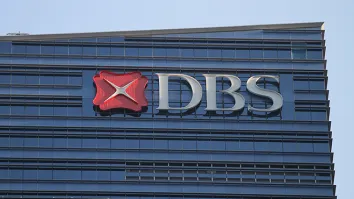


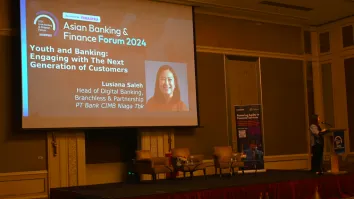

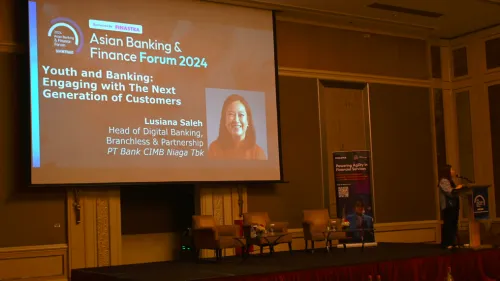

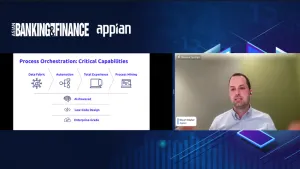
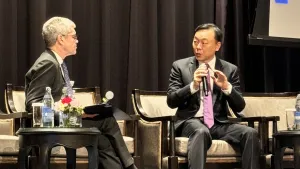




 Advertise
Advertise






